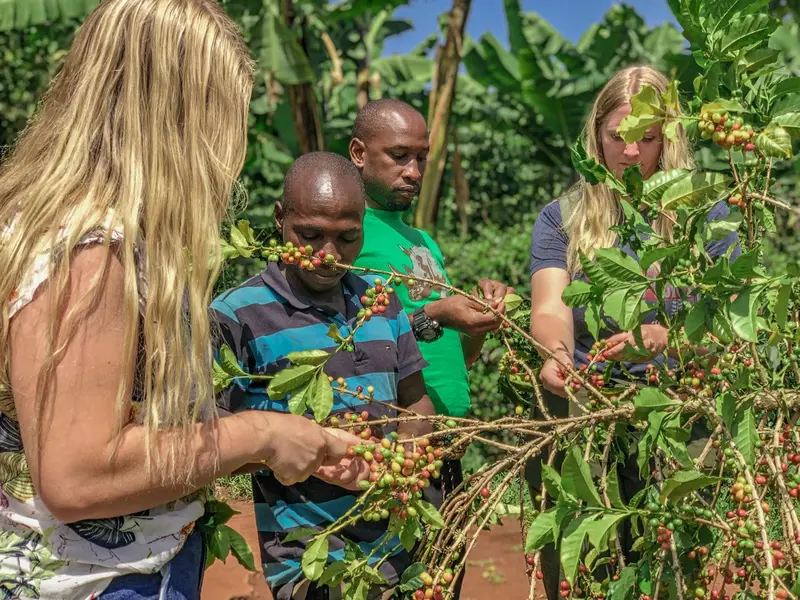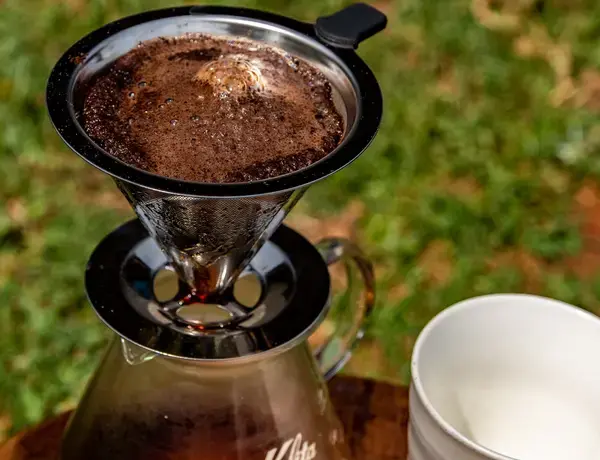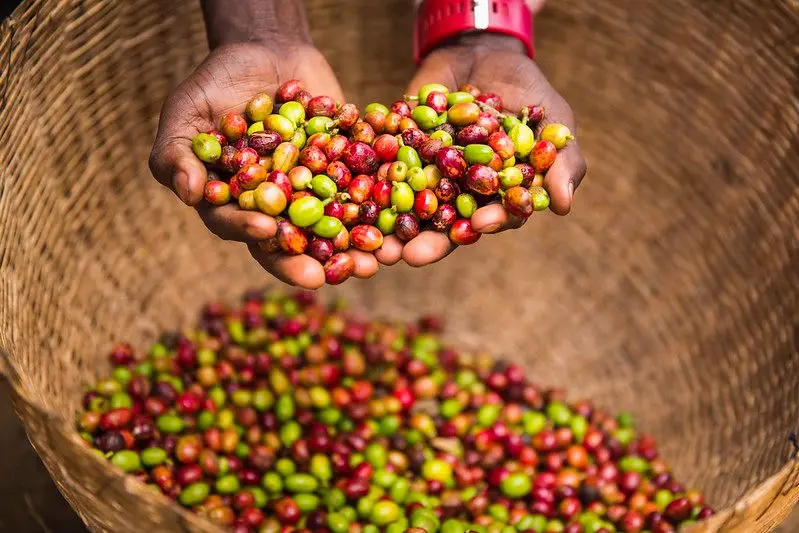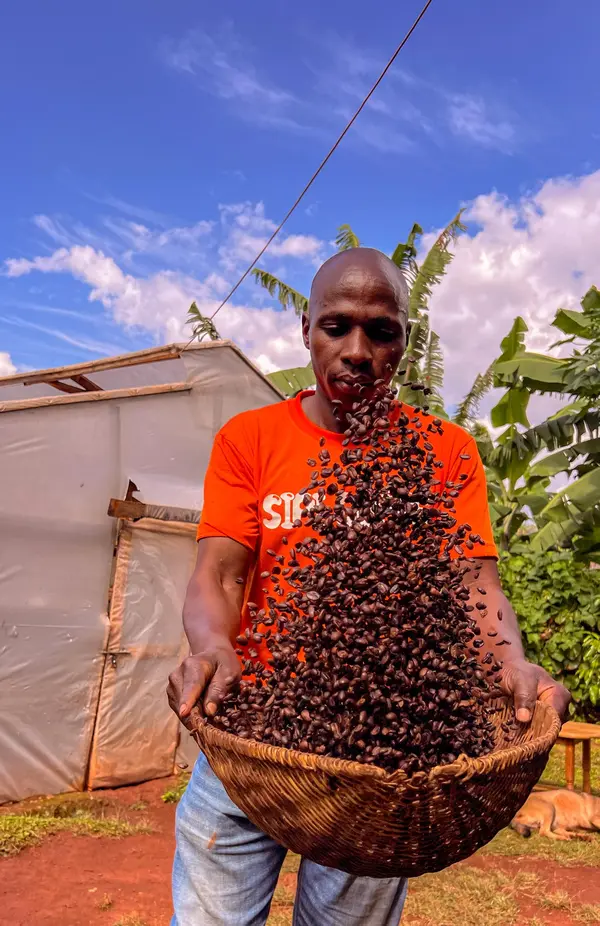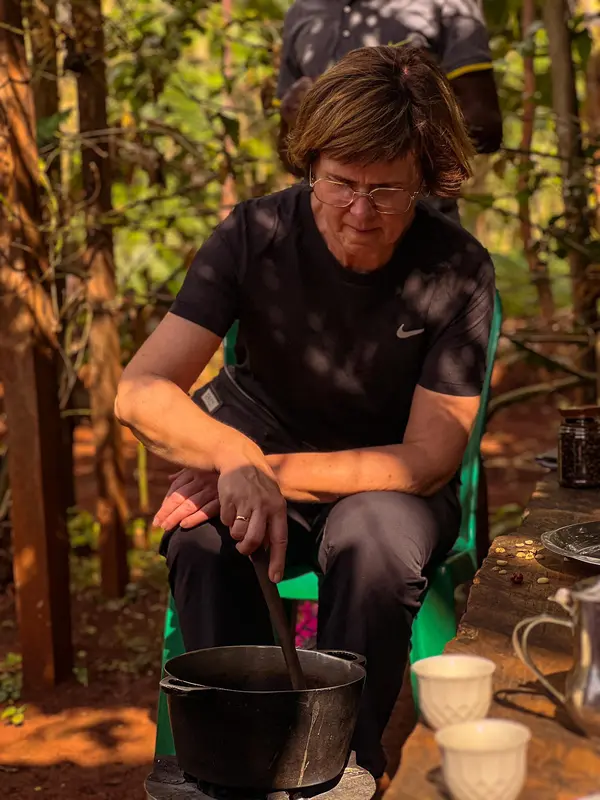Learn How Coffee Is Made on Mount Elgon
Sipi Falls Coffee Tour: From Bean to Cup with Local Farmers
Sipi Falls Coffee Tour
On a Sipi Falls coffee tour, local farmers show you every step.
You will not just watch, but take part in the entire process:
● Pick ripe Arabica cherries from the trees on the slopes of Mount Elgon.
● Learn how the beans are dried, shelled, and roasted over an open fire.
● Grind the beans using a traditional Ugandan method.
● Taste a cup of coffee that you helped to make.
This tour is a true cultural exchange. You gain a deep understanding of the work behind every cup, and your visit directly supports the farmers and their families. By buying some coffee to take back home with you.
Sipi Falls Coffee Tour Details:
● Duration: 2-3 hours
● Includes: Local farmer, all activities, coffee tasting
● Meeting Point: Our office in Sipi (we can give directions)
Coffee Tour Price per person:
Foreigners – $15 ( Ugs – 55,000 )
Ugandans – $12 ( Ugs – 40,000 )
Why you should go on the Sipi Falls coffee tour
You can drink coffee anywhere. But here, you get to understand it.
On this tour, you will walk with local farmers through their local farms on the slopes of Mount Elgon. You will see the coffee plants, learn how the beans are harvested, and help with the traditional process of sorting, peeling, and drying.
Then, you get to roast the beans yourself over a small fire. The guide will show you how to grind and brew it the local way. The taste is completely different from what you buy in a store.
It’s fresh, rich, and you helped make it. And of course, you are surrounded by the incredible local homestays of the Sipi community.
It’s a quiet and authentic experience that connects you to the place and the people who grow this coffee.
What to bring on the Sipi Falls Coffee Tour
To ensure your tour is comfortable, please bring the following items.
The coffee farms are in nature, on uneven terrain and can have insects.
What to wear:
● Long-sleeved shirt and pants: This protects your skin from plants and insects.
● Comfortable, closed-toe shoes are best for walking on the trails. Boots or sneakers are ideal for this purpose.
● Sunscreen: You will be outside for a few hours.
What to bring:
● A bottle of water: It’s important to stay hydrated during the walk.
● A hat (optional): For extra sun protection.
● A camera (optional): The views of the farms and waterfalls are worth capturing.
What to bring on the Sipi Falls Coffee Tour
To ensure your tour is comfortable, please bring the following items.
The coffee farms are in nature, on uneven terrain and can have insects.
What to wear:
● Long-sleeved shirt and pants: This protects your skin from plants and insects.
● Comfortable, closed-toe shoes are best for walking on the trails. Boots or sneakers are ideal for this purpose.
● Sunscreen: You will be outside for a few hours.
What to bring:
● A bottle of water: It’s important to stay hydrated during the walk.
● A hat (optional): For extra sun protection.
● A camera (optional): The views of the farms and waterfalls are worth capturing.
Contact us to book your Sipi Falls coffee tour.
Would you like to know more about any specific aspect of the tour or perhaps plan a visit?
About Arabica Coffee
Arabica coffee needs specific conditions to develop its best flavour.
The slopes of Mount Elgon provide exactly what it needs: high altitude, volcanic soil, and a cool climate. Here, the coffee plants grow slowly. This slow growth concentrates the flavours in the bean, resulting in a smoother, more complex cup.
You might taste notes of chocolate or citrus, with very little bitterness.
But the geography is only part of the story. Local farmers use knowledge passed down through generations to cultivate these plants. They work with the land, not against it.
This Sipi Falls Coffee Tour shows you the direct connection between the environment, the farmer, and your cup of coffee.
Arabica Coffee and Culture on Mount Elgon
The Arabica coffee from the slopes of Mount Elgon is different. The volcanic soil and climate around Sipi Falls create ideal conditions, but the real difference comes from the people.
For the local Bagisu and Sebei communities, coffee is not just a crop. It is a part of their culture. Farming is a family and community effort. This connection to the land shapes their traditions, from the Bagisu’s Imbalu ceremonies to the Sebei’s storytelling.
The process is careful and traditional. Farmers harvest only the ripest cherries by hand. They use generations-old knowledge to process the beans. This attention to detail is why the coffee has such a distinct, high-quality flavour.
Many farmers now use sustainable methods. They grow coffee under shade trees to protect the local ecosystem and avoid harsh chemicals. This helps the environment and makes the coffee better.
This coffee is a vital source of income for families. It pays for school fees, healthcare, and household needs.
When you buy this coffee or join a tour, you are directly supporting these communities. In short, the coffee from Sipi Falls tells a story of tradition, careful work, and community.
You can taste the difference.
Why is the coffee tour different?
A coffee tour at Sipi Falls is a hands-on visit to a local coffee farm.
You learn how coffee is grown and made, from the plant to your cup. You will join a local farmer, Joel Kaburu, on his land on the slopes of Mount Elgon.
He will show you the coffee trees and explain how they grow. You will see each step of the process: harvesting the beans, processing them, roasting, grinding, and brewing.
If you visit during the harvest season, you can help pick the coffee cherries.
The tour ends with you tasting coffee that was roasted and brewed just moments before.
It is a chance to understand where your coffee comes from and to directly support the farmers who grow it.
Ready to Experience Sipi Falls? Book Your Tour Today
FAQs
Do I need a guide for the coffee tour?
Yes. The farms and processing methods are on private land and within the local community.
A guide from Mulima Adventures ensures you can access these areas, interact smoothly with the farmers, and understand each step of the process.
You wouldn’t see the real coffee-making tradition without one.
How can I book a private Sipi Falls coffee tour for a group?
Yes, we arrange private tours. This is a good option for families or groups who want a more personal experience.
Please contact us with your group size and preferred date, and we will confirm the details.
What happens if it rains?
The tour continues in light rain. We have sheltered areas on the farm for the processing and tasting.
For very heavy rain, we will work with you to reschedule your tour.
We recommend bringing a light rain jacket, just in case.
Is the Sipi Falls coffee tour suitable for children?
Yes, children are welcome. The tour involves walking on farm paths, so it’s best for kids who can manage that.
It can be a fun and educational experience for them. Please let us know their ages when you book.
How far in advance should I book?
We recommend booking a few days ahead to secure your spot.
For large groups or weekend tours, booking at least a week in advance is best.
Can I pay with a credit card or mobile money?
We accept cash (Ugandan Shillings or US Dollars) and mobile money.
Please let us know your preferred payment method when you book.
Are you ready for the Sipi Falls Coffee Tour?
BOOK YOUR TOUR NOW
Price p.P. for the Sipi Falls coffee tour
Sipi Falls Coffee Tour Details:
● Duration: 2-3 hours
● Includes: Local farmer, all activities, coffee tasting
● Meeting Point: Our office in Sipi (we can give directions)
Foreigners – $15 ( Ugx – 55,000 )
Ugandans – $12 ( Ugx – 40,000 )
Other interesting activities to experience in Sipi Falls
SIPI FALLS HIKE
ABSEILING SIPI FALLS
SUNSET WALK
History of Coffee
Coffee’s story starts in Ethiopia. On the Ethiopian plateau, a goat herder named Kaldi noticed his goats became energetic after eating berries from a certain bush. He tried the berries himself and felt the same effect.
From Ethiopia, coffee plants travelled to Yemen in the 15th century. There, Sufi monks began brewing the beans into a drink to help them stay awake for nighttime prayers.
Venetian merchants brought coffee to Europe in the 1600s. At first, people were unsure about the new drink. But it quickly became popular.
By the end of the 17th century, coffee was being drunk across Europe and in the American colonies. The coffee you will taste at Sipi Falls is part of this long history. It’s Arabica coffee, the same variety that began in Ethiopia centuries ago.
This history is why a Sipi Falls coffee tour is special. You are not just tasting coffee. You are walking through the same kind of high-altitude farms where it all began.
You are taking part in the same traditional brewing methods used for centuries. It’s a chance to connect with the real story of coffee.
Arabica vs. Robusta:
Know Your Coffee
People often ask what the difference is between Arabica and Robusta coffee. The choice depends on what you like.
Here is a simple breakdown.
Arabica Coffee
Arabica beans have a smoother, sweeter taste. You might notice flavours like fruit, sugar, or chocolate. This coffee grows best in high-altitude areas with cool weather. The plants are delicate and need more care. Most speciality coffees are Arabica.
Robusta Coffee
Robusta beans have a stronger, more bitter taste. They contain about twice as much caffeine as Arabica. This makes the flavour bold and the plant hardy. Robusta grows well in lower, hotter areas and is more resistant to pests.
It is often used in strong espresso blends.
Which one is for you?
Choose Arabica if you prefer a smoother, more complex cup of coffee. Choose Robusta if you want a strong, bold kick with more caffeine.
On our Sipi Falls Coffee Tour, you will see one type growing on the slopes of Mount Elgon.
You’ll taste it yourself.
Uganda’s Coffee
Robusta and Arabica Uganda is a major coffee producer because two types thrive here:
Robusta and Arabica.
Robusta accounts for 80% of national production. It grows well in the lowlands and is known for its strong, bold flavour. Arabica grows in the high-altitude, mountainous areas. It produces a smoother, more aromatic cup of coffee.
Coffee is grown across 11 official regions, including Bugisu, Kapchorwa, and the Rwenzori region. The Kapchorwa area, for example, is a leading producer of high-quality Arabica.
This diversity means you can taste different coffees based on the region you visit.
A coffee tour in the mountains near Sipi Falls will introduce you to unique Arabica flavours, shaped by the volcanic soil and climate.

